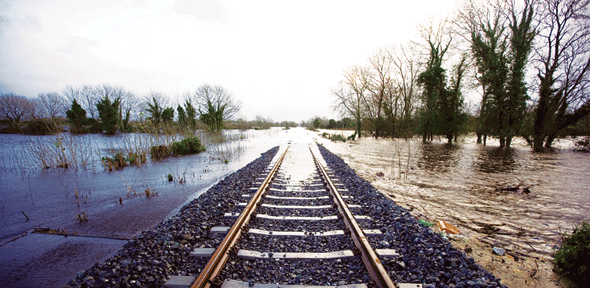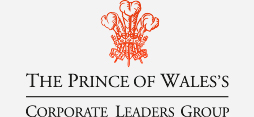
14 January 2016 – A warm and wet UK winter has increased public awareness of the devastating impacts of climate change, argues David Webb. Combined with a successful outcome at COP21 in Paris last month, this could help the irresistible shift towards a low carbon economy.
Climate change in the UK: a growing public concern
By David Webb, Programme Manager, The Prince of Wales's Corporate Leaders Group
14 January 2016
Wet and warm, that’s how the UK felt over the Christmas and New Year break. Extraordinarily wet and warm actually, the wettest UK month for over a century and the warmest December since 1910. All polite conversations over the holidays were punctuated by commentary on the weather, the appalling flooding in the north of England and Scotland and the t-shirt temperatures that have led clothes retailers to offer profits warnings.
People notice these things; predicting the weather of the moment seems tougher, discussions are about new norms, and about how the changes in the seasons and the increasing frequency and severity of extreme weather events may affect folks’ jobs and their day-to-day lives.
On a long walk in the deserted Lincolnshire Wolds over the break, I returned to the village pub after enjoying spring-like weather and immediately entered into discussion with the estate workers about the impact of the temperature on their growing cycles, their soils and the wildlife that they were working so hard to encourage and protect.
I received a copy of ‘The Invention of Nature – the Adventures of Alexander von Humboldt’ as a Christmas gift. Andrea Wulf’s Costa-winning biography of the remarkable polymath details how his prescience (he predicted anthropogenic climate change as early as 1800) was formed by his formidable memory that allowed him to make connections from his observations as he travelled the world. Humboldt’s personal perceptions are akin to how we are all concurrently noticing these changes, how society is becoming increasingly cognisant of the interdependency of earths systems and how humans are interacting with them.
Political will
Add the Paris Agreement – the first universal deal ever reached on climate change – to this surfacing public awareness. We can’t kid ourselves that Paris will last too long in the consciousness of people’s everyday lives. The details that we heartily pore over at CISL will be mostly of little interest to people going about their daily business. However, alongside growing public appreciation of the need to see change, Paris signalled the political will to steer towards a low carbon economy. By doing so it has created a catalytic instrument that can spur investment and innovation at ambitious rates – this combination of the societal and political, could lead to an irresistible shift towards new practice.
Business recognises the critical role it can play in helping to define this new practice. It has long understood that future success will be in delivering the low carbon, resource-efficient future economy and acknowledges that customers will hold them to account. ‘Business as usual is dead’ stated Philippe Joubert, Chair of The Prince of Wales’s Corporate Leaders Group early in 2015 when he made clear the importance of involving the corporate sector in climate change solutions. He voiced that leading businesses were making great strides towards change and needed political support to reach further.
Governments under scrutiny
All actors are going to have to take their roles as we seek to ‘Rewire the Economy’, creating an economy that encourages sustainable business practices and delivers positive outcomes for people and societies. The public must play their part supporting enterprise and building community based on their collective appreciation of the need for new thinking. Business must be open and collaborative, accepting that they will have to find new ways to operate and continue to build the public’s trust that they have sustainable practice at heart. But post-Paris and with public sentiment so clear, governments are now under scrutiny to find ways to truly open this agenda with appropriate policy that supports a just and timely transition.
In the UK, government has work to do in this regard. The framework afforded by the Climate Change Act and the leading role that the UK were able to play in Paris must now be complemented by a positive narrative and long-term policy that gives confidence to businesses and investors and supports the role that the public can play. Perhaps with increasing public appreciation of the need for change and the clarification of the global opportunities afforded by the low carbon transition, we will see a renewed confidence at policy level to drive change in the UK. The Corporate Leaders Group will continue to offer insight and support to policymakers, ready to find solutions to the increasing risks to people, communities and the wider environment, and to maximise the exciting global opportunities offered by the Paris Agreement.





 David Webb is Programme Manager of The Prince of Wales’s Corporate Leaders Group.
David Webb is Programme Manager of The Prince of Wales’s Corporate Leaders Group.